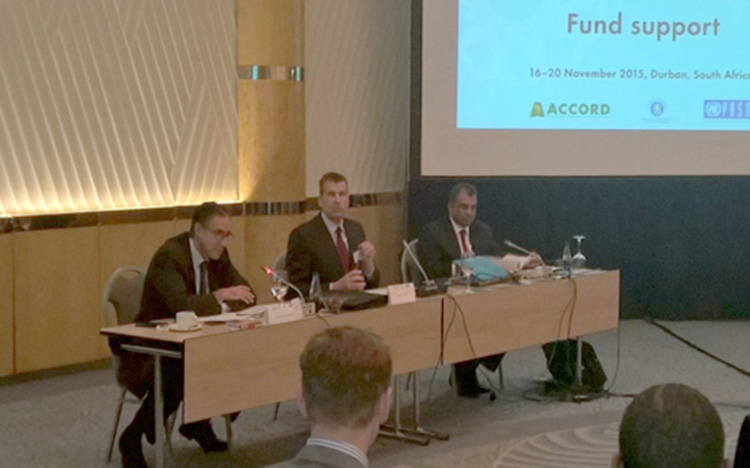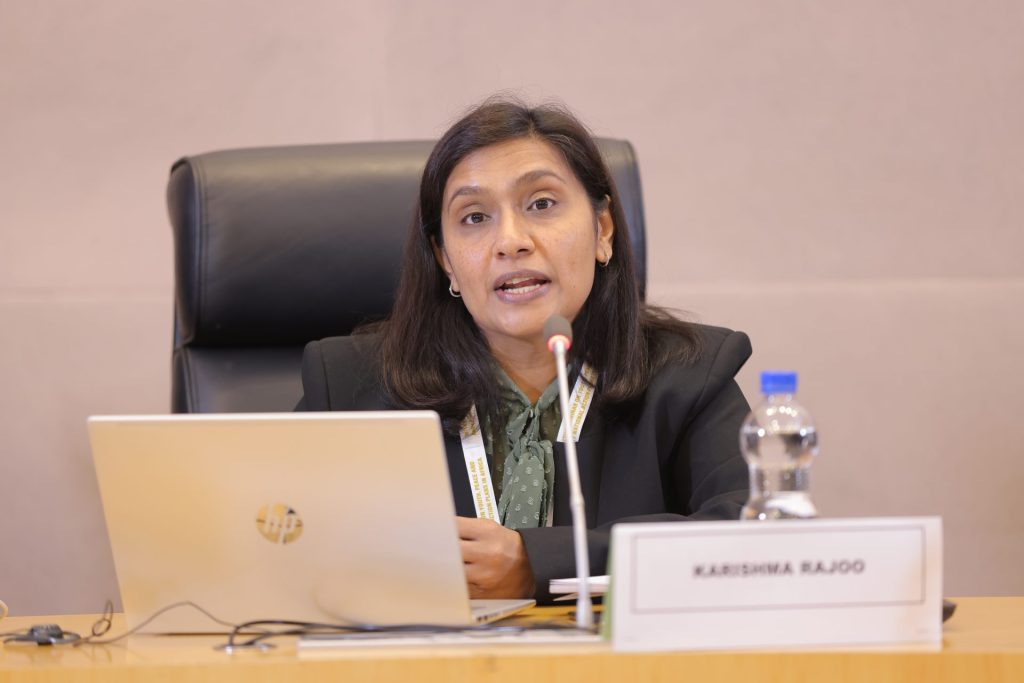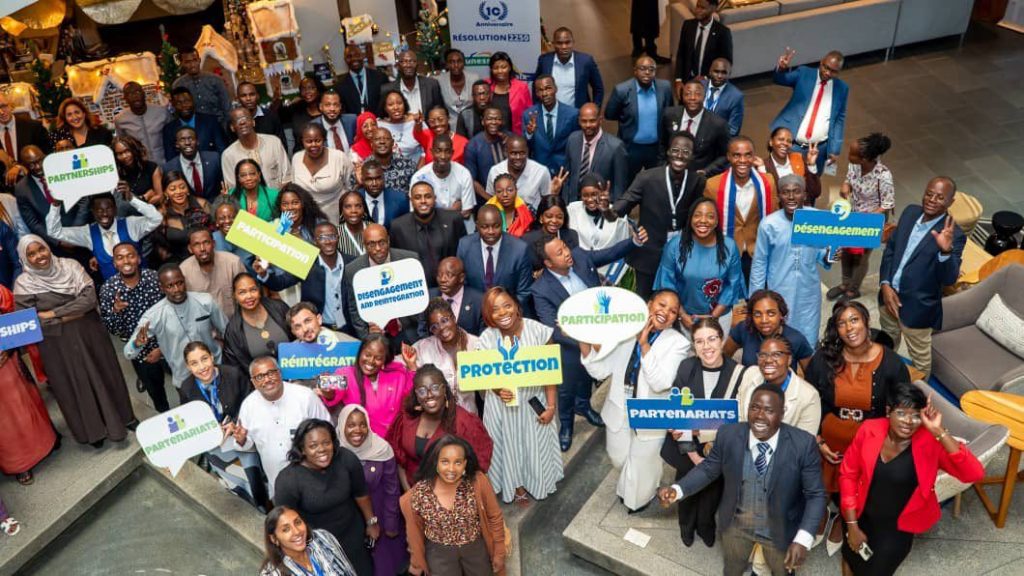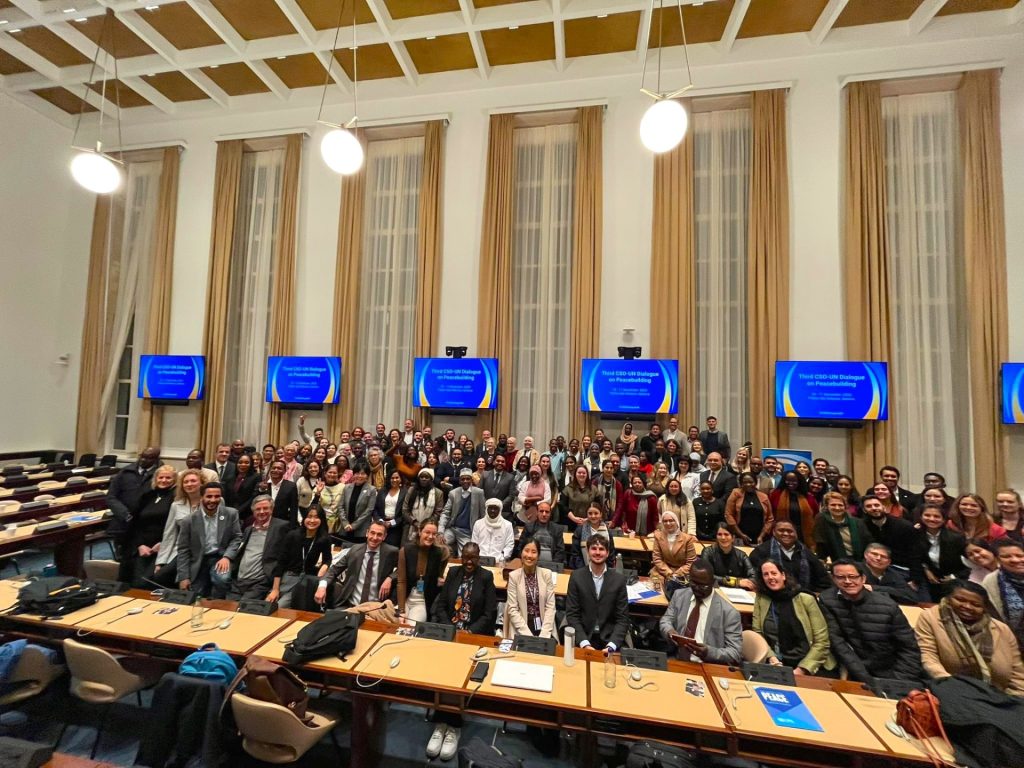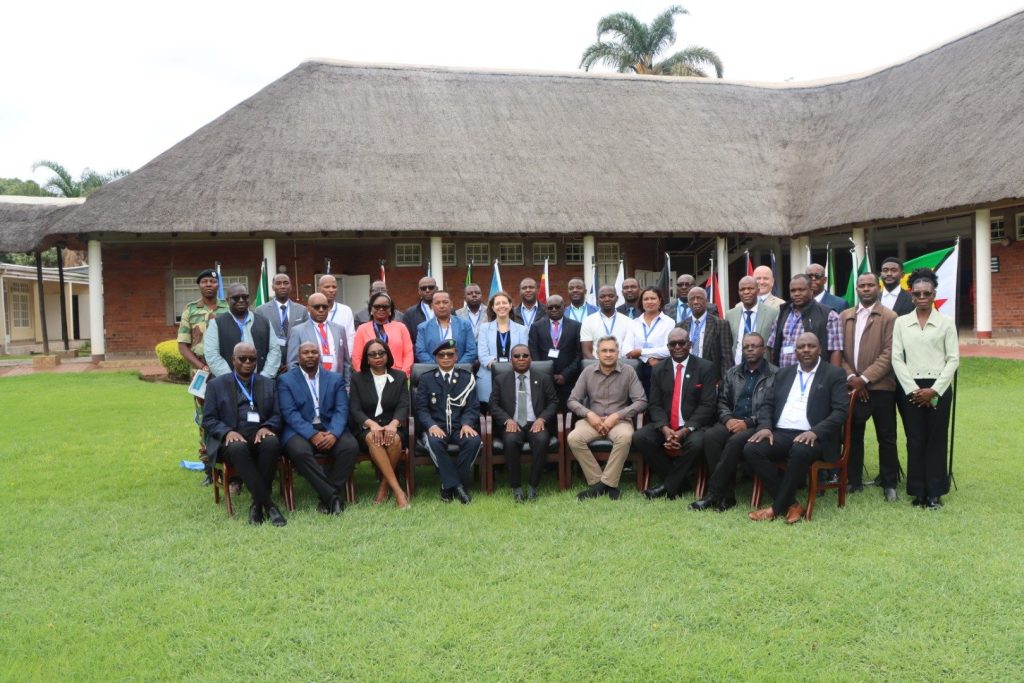ACCORD’s African Peacebuilding Coordination Programme (APCP) in conjunction with the United Nations Peacebuilding Office conducted a 3rd global workshop on enhancing the inclusivity and accountability of the United Nations (UN) Peacebuilding Fund (PBF) Support. The workshop aimed to leverage the presence of multi-country experience to discuss recent developments and thinking within PBF donor countries and provide a venue for exchange on innovations for gaining greater inclusivity and accountability within peacebuilding approaches. This initiative will strengthen the inclusiveness and accountability of PBF programs to national governments, civil societies and the people, in all stages of peacebuilding programming, including strategic prioritisation, project formulation, project monitoring and governance/oversight of PBF programs.
The workshop was conducted from 16-20 November 2015 in Durban, South Africa. The participants were selected from 11 countries with experience on innovative lessons in accountability and inclusivity of PBF programming. The countries include: Burundi, Central African Republic, Cote d’ Ivoire, Democratic Republic of Congo, Guinea, Guinea-Bissau, Kyrgyzstan, Madagascar, Mali, Niger, Somalia, Sri Lanka, South Sudan, and Papua New Guinea. Forty-nine highly experienced participants from government, the UN and civil society were in attendance, this included H.E Mme Chandrika Kumaratunga – Head of the Office of National Unity in Sri Lanka and former President Sri Lanka; Professor Abdoulaye Bathily; Special Representative of the Secretary-General for Central Africa; Mr. Oscar Taranco-Fernandez – Assistant Secretary-General, Peacebuilding Support Office (PBSO); Colonel Major Abou Mahamadou Tarka – President of the High Authority for Consolidation of Peace in Niger; Ms. Mary Awaj Jervase Yak – Deputy Minister for Planning, Ministry of Finance and Economic Planning in South Sudan; Ms. Onitiana Realy – Minister of Population, Social Protection and Promotion of Women in Madagascar; and Mr. Gassama Kalifa Diaby – Minister of Human Rights in Guinea.
The UN PBF was established in 2005 through resolutions by the United Nations Security Council (UNSC) and UN General Assembly to stand alongside the Peacebuilding Commission and PBSO in support of critical peacebuilding activities. Currently, the Fund supports approximately 25 countries worldwide, with an annual programming budget of around USD100 million for interventions of direct and immediate relevance to the peacebuilding process, which address critical gaps in areas where no other funding mechanisms are available.
ACCORD supported the administrative requirements of the workshop on a daily basis, and shared ACCORD’s lessons and experiences of monitoring and evaluating programmes and the inclusivity and role of women in Burundi. The workshop established a common understanding of the conclusions and recommendations from the Peacebuilding Architecture Review and its impact on PBF, stronger relations between the UN Peacebuilding Commission and PBF and finding more innovative and flexible approaches to peacebuilding management, oversight and support. Practitioners achieved a better understanding by UN Peacebuilding Support Office and PBF stakeholders on how to best include women and youth in peacebuilding strategising, planning and implementation.
The deliberations from the workshop’s group work strengthened the capacity of the PBF secretariats and focal points to monitor the results of PBF programs, allowing for course correction and lessons learned, and to support Joint Steering Committees in their oversight function, including the drafting of high quality annual reports against the Peacebuilding Priority Plans. The workshop presented an excellent opportunity to discuss the findings and recommendations from the 2015 global Peacebuilding Architecture Review, considering its impact on PBF programs. These initiatives directly build on targeted institutional capacity to consolidate peacebuilding programmes.
The workshop was held under the auspices of ACCORD’s Peacebuilding Coordination Programme (APCP). The overall objective of APCP is to contribute to greater coherence and coordination amongst peacebuilding actors in Africa towards enhanced stability and security across the continent, with South Sudan being one of APCP’s focus countries. ACCORD will continue to enhance the institutional capacity of targetted stakeholders, through consolidated peacebuilding interventions and advice.
ACCORD has been working with the UN PBSO since its inception in 2007, and intends to continue working collaboratively with the UN Peacebuilding Support Office PBSO) on this important issue of peacebuilding and related post-conflict reconstruction and development initiatives. ACCORD supported the UN PBSO in convening the first global workshop for the UNPBF in 2013, for approximately 30 national representatives and United Nations Country Team (UNCT) members from 10 countries receiving PBF support. ACCORD and UN PBSO further jointly convened the second global workshop on the UN PBF in 2014, which encouraged peacebuilding actors share experiences, increase coherence and coordination, solidifying relationships across country settings, and to encourage peer-to-peer support and learning.

